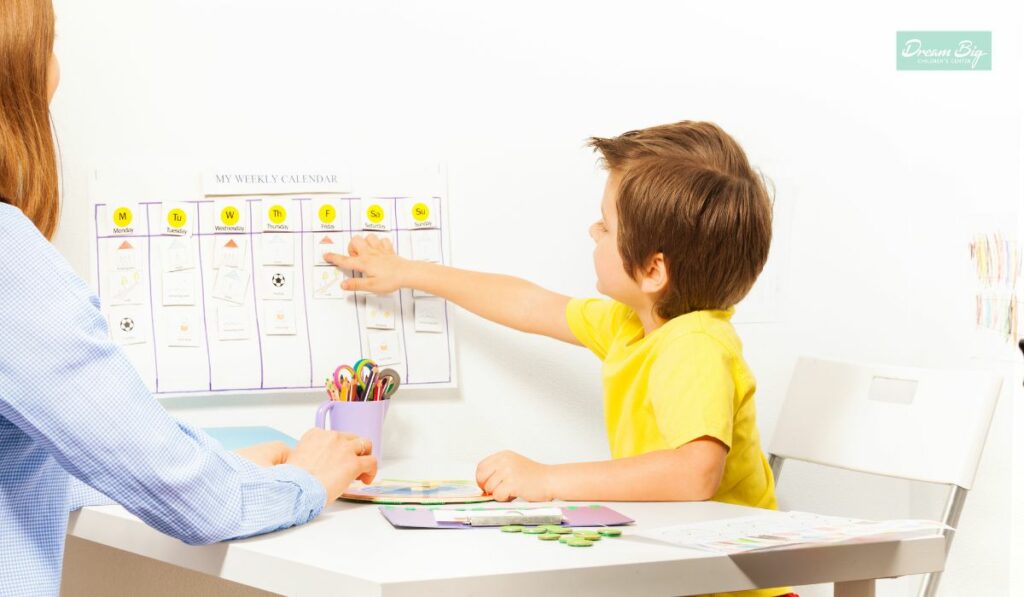Navigating Insurance for Autism Services
Learn how to effectively navigate insurance for autism-related services.
Music is a universal language that can unlock a world of creativity, joy, and development for children. For children with autism spectrum disorder (ASD), music lessons can offer a unique opportunity to improve social skills, communication, and motor skills. However, the new environment and expectations of music lessons can sometimes be overwhelming. This is where Applied Behavior Analysis (ABA) therapy by Dream Big Children’s Center can step in and prepare your child for success.
ABA therapy is a scientific evidence-based approach that focuses on improving social, communication, and learning skills. Through positive reinforcement and structured learning techniques, ABA therapists can help children on the autism spectrum develop the skills they need to thrive in different environments.
Music serves as a powerful tool for emotional regulation in individuals with autism. Exploring how rhythms, melodies, and harmonies contribute to emotional well-being sheds light on the therapeutic aspects of music.
The communal nature of music fosters social interaction. Examining how group activities and collaborative musical experiences benefit children with autism emphasizes the importance of inclusive music education.

Music engages various cognitive functions, promoting intellectual growth. Investigating the cognitive benefits of music for children with autism underscores its potential in enhancing cognitive skills and academic performance.
The role of music in developing communication skills cannot be overstated. Exploring the link between musical expression and improved communication provides insights into effective teaching strategies.
Here are some ways ABA therapy at Dream Big Children’s Center can prepare your child with ASD for music lessons:
Building Social Skills: Music lessons often involve group activities and interaction with the teacher. ABA therapists can help your child develop appropriate greetings, turn-taking skills, and techniques for managing personal space – all crucial for a positive social experience in music class.
Communication Skills: Learning a musical instrument or singing requires understanding and responding to instructions. ABA therapy for children can target receptive and expressive language skills to ensure your child can follow the teacher’s directions and communicate their needs effectively.
Focus and Attention: Music lessons demand sustained focus. ABA therapists can work on improving your child’s attention span and reducing distractions through positive reinforcement and structured practice activities.
Familiarity and Comfort: New environments with unfamiliar sounds and routines can be anxiety-provoking for children with ASD. ABA therapy can incorporate role-playing exercises to simulate the music lesson environment, helping your child feel more comfortable and prepared.
Motor Skills: Playing an instrument or keeping rhythm often requires fine and gross motor skills. ABA therapists can design programs to improve these skills through targeted exercises and fun activities, making music lessons more enjoyable and successful.
Creating a Dream Team: Collaboration Between ABA Therapists and Music Teachers
For optimal results, collaboration between your child’s ABA therapist and music teacher is essential. Dream Big Children’s Center can facilitate communication to ensure a cohesive approach. Therapists can share relevant information about your child’s strengths, challenges, and learning style, while the music teacher can provide insights into specific skills needed to excel in music lessons.
Music, with its universal appeal, has proven to be a valuable tool in managing and enhancing the lives of children with autism. As we delve into the intricacies of this intersection between music and autism, it becomes imperative to understand the unique challenges and opportunities.
At Dream Big Children’s Center, we understand the unique needs of children with ASD and are passionate about helping them explore their potential. We offer comprehensive ABA therapy programs to help your child prepare for anything in life.

Contact Dream Big Children’s Center today to schedule a consultation and discuss how ABA therapy can help your child embark on a joyful musical journey!
Music offers therapeutic benefits, providing a means of expression, emotional regulation, and cognitive development for children with autism.
Children with autism often encounter unique obstacles, including afferent sensitivities and communication difficulties, requiring tailored approaches in music education.
Autism is a spectrum, encompassing a wide range of abilities and challenges. Understanding this diversity is crucial for tailoring music lessons to individual needs.
Music contributes to emotional regulation, social interaction, cognitive development, and improved communication skills for children with autism.
A qualified instructor should have specialized training in autism, patience, understanding, and adaptability in teaching methods.
A afferent-friendly space, visual aids, structured schedules, and minimizing distractions contribute to a supportive learning environment.
Assistive technology, interactive learning apps, and virtual lessons provide accessibility and engagement, enhancing the overall learning experience.
Individualized assessments, realistic goal-setting, and adjusting pace and complexity are essential in developing effective and targeted lesson plans.
Music therapy techniques, incorporating rhythm and movement, and utilizing expressive arts contribute to the overall well-being of children with autism.
Inclusive group activities promote social interaction, peer relationships, and a sense of community, offering diverse benefits for children with autism.
We are committed to empowering families with the information and support they need.
Learn how to effectively navigate insurance for autism-related services.
Explore our FAQs for clear, simple answers about our services, insurance.
Learn how to effectively navigate insurance for autism-related services.